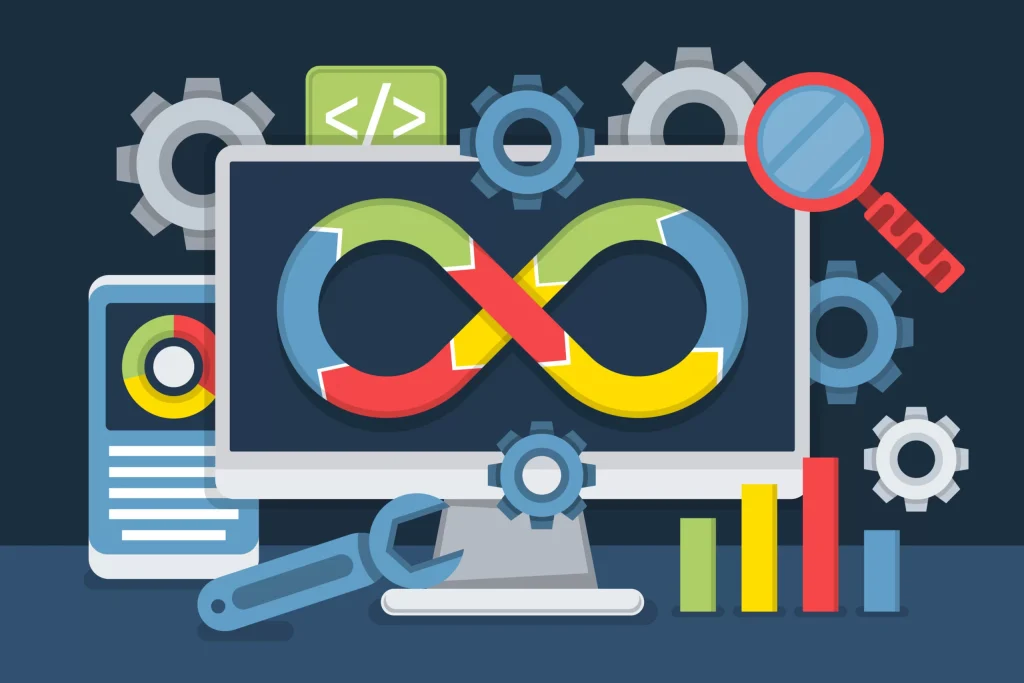The Expanding World of TECH: How Technology Shapes Our Present and Future

The term “TECH” has evolved far beyond its humble roots. Once shorthand for “technology,” it now represents a massive universe of innovation, touching every part of our daily lives. From smartphones to satellites, machine learning to medical devices, tech is not just about gadgets anymore—it’s about solving human problems, reimagining industries, and accelerating possibilities.
In this 1500-word deep dive, we’ll explore how tech is changing the way we live, work, and think—from emerging technologies like AI and quantum computing to everyday conveniences like smart homes and e-commerce. Whether you’re a tech enthusiast, entrepreneur, or someone simply trying to keep up with the times, this article offers a grounded look at what TECH means in the 21st century.
1. TECH in Daily Life: From Smart to Smarter
It’s easy to forget how much tech is embedded into the routines of our everyday lives. Wake up in the morning? Your alarm clock might be Alexa or Google Assistant. Commute to work? Your route is optimized by GPS and traffic prediction algorithms. Even your coffee machine may be programmable via smartphone.
Smart Homes are a prime example of how tech is shifting domestic life. Devices like Nest thermostats, Ring doorbells, and Philips Hue lights are turning regular homes into intelligent environments that react to human behavior. These systems improve energy efficiency, security, and convenience—all thanks to the Internet of Things (IoT).
Meanwhile, wearables like fitness trackers and smartwatches allow us to monitor everything from our heart rate to sleep quality in real time. These small but powerful devices are part of a broader shift toward personal tech that empowers users to manage their own well-being.
2. TECH at Work: Productivity and Transformation
The workplace has undergone one of the most dramatic tech transformations in recent memory. Remote work, once considered a perk, became a necessity during the COVID-19 pandemic—and tech was the bridge that made it possible. Zoom, Slack, Microsoft Teams, and cloud computing tools like Google Workspace have become the backbone of virtual collaboration.
Automation, powered by Artificial Intelligence (AI) and machine learning, is also transforming the workforce. Repetitive tasks—like data entry, customer support, and even parts of legal research—can now be handled by intelligent algorithms. This doesn’t mean machines are replacing humans across the board. Rather, they are enabling people to focus on higher-level thinking, creativity, and innovation.
In industries like manufacturing, robotics is revolutionizing production lines, increasing efficiency, and reducing human error. Meanwhile, blockchain technology is reimagining how transactions, contracts, and digital identity are handled in business.
3. TECH and the Rise of Artificial Intelligence
Perhaps no area of tech is as exciting—or as controversial—as Artificial Intelligence. From chatbots like ChatGPT to autonomous vehicles, AI is being integrated into tools and platforms we use every day.
AI can now write poems, predict weather patterns, detect diseases, and even compose music. But it also raises ethical concerns: Who is accountable for an AI’s decisions? How do we prevent bias in algorithms? These are questions governments, developers, and users alike are grappling with.
Generative AI—like the large language model you’re reading right now—is especially notable for its ability to create content, simulate conversation, and assist in coding, writing, and design. This has massive implications for sectors like education, journalism, customer service, and marketing.
4. TECH in Healthcare: Saving Lives With Innovation
In the medical field, tech is doing far more than digitizing patient records—it’s helping save lives. Innovations like telemedicine, robotic surgery, and AI-based diagnostics are reshaping how healthcare is delivered.
Telehealth platforms allow patients to consult doctors without ever stepping into a clinic, providing greater access to care in remote or underserved regions. AI tools are assisting radiologists in spotting early signs of cancer and helping pharmaceutical companies discover new drugs faster.
Additionally, wearable tech now plays a pivotal role in preventive care. Devices that track glucose levels, heart rhythms, and blood oxygen saturation are increasingly helping patients manage chronic conditions in real-time.
5. TECH in Education: Personalized and Digital
Remember the days of chalkboards and heavy textbooks? Those are fading fast. The classroom of today is often equipped with interactive whiteboards, e-learning platforms, and virtual reality (VR) simulations.
EdTech—short for Educational Technology—is one of the fastest-growing sectors. Platforms like Khan Academy, Coursera, and Duolingo are making education more accessible to people around the globe. AI is also helping customize learning experiences to suit individual student needs, pace, and learning styles.
Teachers aren’t being replaced by technology, but they are being empowered by it. Tech enables them to spend more time on mentorship and less on repetitive grading or administration.
6. TECH and the Economy: Startups, Crypto, and the Global Marketplace
Technology has been the catalyst for a new kind of economy—fast-moving, borderless, and digital-first.
Startups leveraging TECH are changing everything from how we order food (hello, food delivery apps) to how we manage money (thanks to fintech like PayPal, Revolut, and Stripe). These companies often scale fast, breaking traditional business models and ushering in what some call the “disruption economy.”
And then there’s cryptocurrency and blockchain—arguably the most disruptive tech in finance. Bitcoin, Ethereum, and decentralized finance (DeFi) platforms are challenging the traditional banking system, though not without risk or regulatory hurdles.
7. TECH in Entertainment: Streaming, Gaming, and Immersion
The entertainment industry has been utterly transformed by tech. Think about how you consume music or movies now. Spotify, Netflix, and YouTube have put entire libraries of content in your pocket.
Gaming has evolved into an immersive and social experience, powered by cutting-edge graphics, cloud gaming, and multiplayer ecosystems. Esports is now a billion-dollar industry, with professional players, global tournaments, and millions of fans.
And with the rise of Virtual Reality (VR) and Augmented Reality (AR), we’re entering a new dimension of interaction. Whether it’s playing Pokémon GO, trying on clothes via AR, or exploring virtual museums, tech is turning passive viewing into active engagement.
8. TECH and the Environment: Greener Solutions Through Innovation
Tech doesn’t just create—it can also help preserve. As the world grapples with climate change, technology offers tools for monitoring, managing, and mitigating environmental damage.
Renewable energy tech, like solar panels and wind turbines, is becoming more efficient and affordable. Smart grids and energy storage solutions are optimizing how power is distributed and consumed.
Meanwhile, climate tech startups are working on everything from carbon capture to lab-grown meat. Agricultural tech (AgTech) is enabling farmers to use data-driven irrigation and pesticide application, conserving resources while increasing yield.
9. The Dark Side of TECH: Privacy, Security, and Misinformation
For all its benefits, tech comes with risks. Data privacy has become a hot-button issue as social media companies and advertisers collect vast amounts of user information. The rise of deepfakes, hacking, and cyber warfare means that security is no longer just physical—it’s digital.
Misinformation and echo chambers, amplified by algorithms, have also posed a threat to democracy and social cohesion. It’s not enough to build powerful tools—we must also build ethical frameworks and regulations that ensure tech is used responsibly.
10. What’s Next? The Future of TECH
Looking ahead, emerging technologies like quantum computing, biotech, and space tech are poised to redefine what’s possible. Quantum computers, for instance, could solve problems that are currently intractable—even for the best supercomputers.
Meanwhile, private companies like SpaceX are making commercial space travel a reality, and biotech firms are exploring gene editing and personalized medicine.
One thing is certain: tech is not slowing down. And as it continues to evolve, it will bring both opportunities and challenges that require thoughtful leadership, innovation, and public discourse.
Conclusion: Embracing TECH with Purpose
TECH is no longer a niche category—it’s the lens through which we understand progress. Whether you’re coding the next app, using AI to speed up your workflow, or just streaming a favorite show on your phone, you are living in a world shaped by technology.
But with great power comes great responsibility. As we continue to innovate, we must also ask ourselves: Are we using tech to enhance human potential or to replace it? Are we building a future that’s inclusive, ethical, and sustainable?


